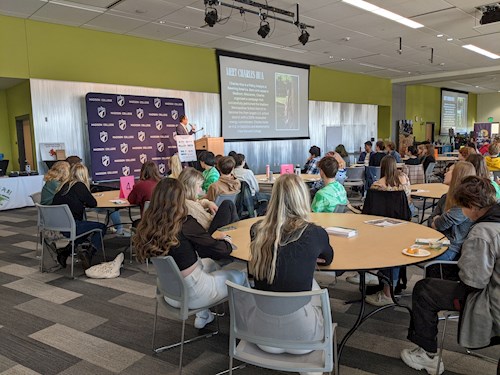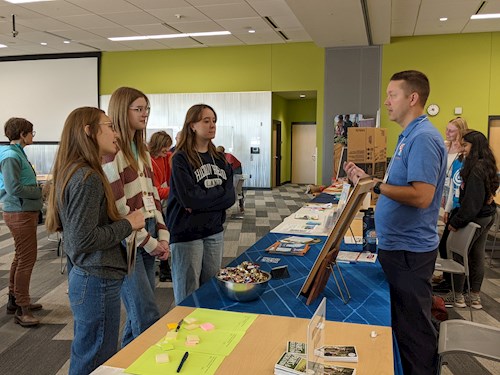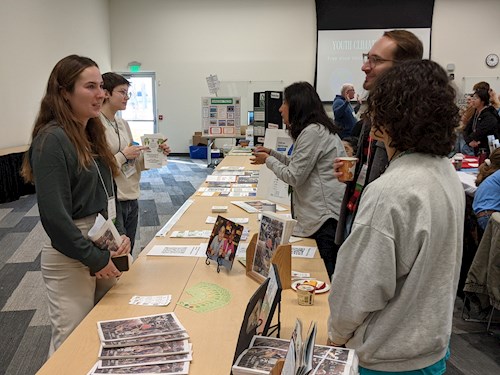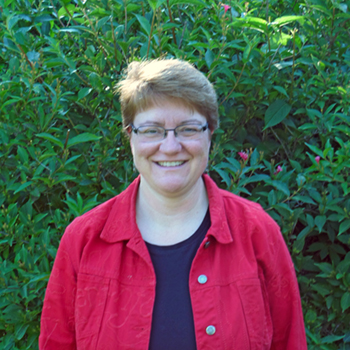

Last Saturday more than 120 high school students, college students, and even a few eighth graders gathered to talk about the climate crisis.
This event provided numerous opportunities for discussion – some people shared their thoughts and ideas formally and everyone was part of the conversation. And young people led the discussions.
This was our third high school climate conference and it’s been an amazing journey. The whole idea for this event came from members of the local UNA-USA Dane County chapter, people concerned about global affairs and interested in engaging youth on the issues that are raised annually at the UN climate talks, the COP events (this year COP 28 is in Dubai).
One of the things I’ve appreciated about this event from the first is that even though the UNA-USA Dane County members are smart, articulate and well-versed on climate issues, the adults who conceived this event are really deliberate in inviting students to be at the microphone.
Over the past few years the conference has evolved. The first year “experts” talked to students about climate science, climate policies and climate action both globally and locally. The second year the keynotes were a student activist, talking about what it meant to have a seat at the table and a UW graduate student, talking about the science of climate communications.
This year two youth climate activists talked about their journeys, Charles Hua a Madison West graduate who now works on national energy policy and Marinel Ubaldo, a Phillipino woman who was inspired to global climate activism after her village was destroyed in a typhoon. And for the last two years we have partnered with Mikhaila Calice from UW-Madison’s Life Science Communications Department on interactive efforts that enable students to co-create strategies with their peers.
At the first conference the organizers created the program and wrote a script for student moderators. At that event only the open microphone was un-choreographed. This year students created the program, developing their own slide decks and script for the day. More, the workshops were more interactive than ever before and most were led by students. I was lucky enough to be an extra in a workshop where two local youth who are active in city and village sustainability efforts shared their insights and led students in a role playing exercise. At the end at least one attendee was inspired to approach her local officials about creating a sustainability committee. 
The conference planning is a lot of work. Organizers gather to plan the program, raise funds to cover the event costs, and outreach to students about attending. The zoom calls are fun and frustrating as the group works through scores of details. Sometimes the discussions reveal generational gaps; the oldest members of the planning group are in their 70s and the youngest are 15.
We are all acutely aware that climate anxiety is a significant issue for many youth. One global public health study found that 75% of US youth are at least moderately worried about climate change. A key aim of the conference is to show students that they are not alone and that they have agency. We provide students with examples of climate action, especially action from youth, so that the attendees feel a measure of hope and inspiration around these important issues.
Each year there is evidence that this is working. At the first open microphone three years ago one young man shared that the discussions left him feeling optimistic about his future for the first time in years (he was 15). And this year at the open microphone one young woman got up and shared that “attending last year changed my life” and went on to describe how she’d found community that enabled her to direct her climate concerns into climate action. 
As one of the organizers, the event reminds me that students can do amazing things. I’m reminded that it’s my job to give youth opportunities to vision and pursue their own climate solutions while I also do everything I can to inspire the adults in our communities to reduce their emissions too.
At the end of the conference each year I’m exhausted and I’m grateful that our community comes together to create this amazing opportunity for local youth. It’s just one more way in which Dane County is leading on climate action.

Kathy is the Director of the Dane County’s Office of Energy and Climate Change. In that role she's leading efforts to implement the Climate Action Plan. Prior to coming to Dane County, Kathy led Cool Choices and, prior to that, she led Wisconsin's Focus on Energy program.
The Dane County Office of Energy & Climate Change maintains this blog as a way to offer:
To be sure that you don't miss new blog entries, subscribe to our email updates.